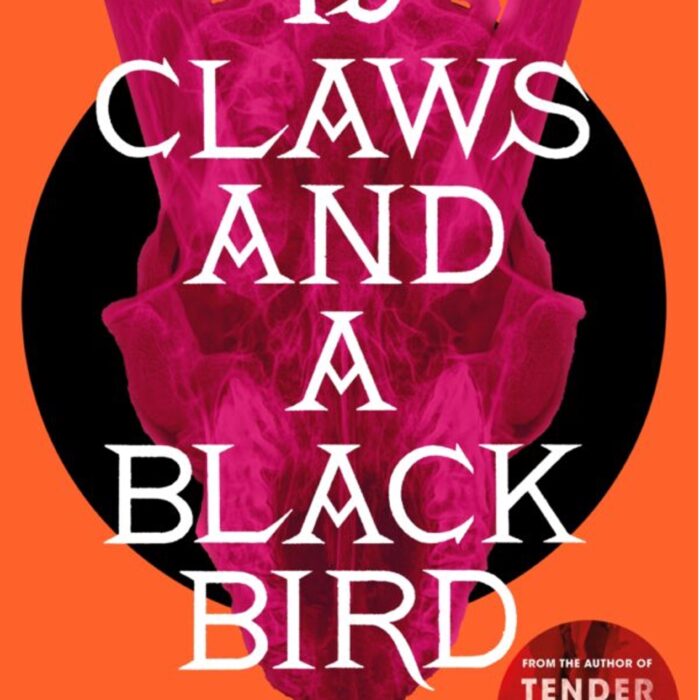You have no items in your cart. Want to get some nice things?
Go shopping Oscar Wilde’s 1895 obscenity trial has defined the way we think about Victorian attitudes to homosexuality. Revelations about ‘the love that dare not speak its name’ led to public censure and the hounding out of England on a tide of righteous indignation of the men at the centre of the case. But, in fact, Wilde’s trial marked a sea-change in the way Britain reacted to same-sex attraction. Wilde’s conviction itself (for ‘gross indecency’) had only become possible because of an act passed barely ten years before, an act that was, in practice, the strictest anti-homosexuality law the country had ever seen. Although sodomy had been a hanging offence until 1861, the severity of the punishment meant that the police were very reluctant to make arrests, and juries were in turn reluctant to convict. And it turns out that rigidly ‘Victorian’ gender binaries didn’t really develop fully until the end of the century, either. The concept of the ‘homosexual’ was first put forward in sexological texts in the 1880s – before that people didn’t consider themselves as attracted to an entire sex in the way we do today.
Oscar Wilde’s 1895 obscenity trial has defined the way we think about Victorian attitudes to homosexuality. Revelations about ‘the love that dare not speak its name’ led to public censure and the hounding out of England on a tide of righteous indignation of the men at the centre of the case. But, in fact, Wilde’s trial marked a sea-change in the way Britain reacted to same-sex attraction. Wilde’s conviction itself (for ‘gross indecency’) had only become possible because of an act passed barely ten years before, an act that was, in practice, the strictest anti-homosexuality law the country had ever seen. Although sodomy had been a hanging offence until 1861, the severity of the punishment meant that the police were very reluctant to make arrests, and juries were in turn reluctant to convict. And it turns out that rigidly ‘Victorian’ gender binaries didn’t really develop fully until the end of the century, either. The concept of the ‘homosexual’ was first put forward in sexological texts in the 1880s – before that people didn’t consider themselves as attracted to an entire sex in the way we do today.
Put all of those things together and it’s possible to argue that, against anything most of us would assume today, it might have been easier to be gay in the middle of the nineteenth century than at any time between 1885 and 1967, when homosexuality was finally decriminalised in England and Wales. And few things illustrate this more clearly that the 1870 trial of Fanny and Stella, legally known as Frederick Park and Ernest Boulton, for the slightly puzzling and vague crime of ‘conspiring and inciting persons to commit an unnatural offence’.
The details of Fanny and Stella’s story will completely destroy all your presumptions about Victorian attitudes to sexuality. They and their circle of friends regularly dressed in elaborate drag and went out into the centre of London (they were finally arrested in the Strand Theatre after attending a performance there as women). But it’s clear that they didn’t treat their female personae as part of some separate secret life. At the trial, witnesses testified that they were regulars of the fashionable Burlington Arcade, where they would sometimes appear as heavily made-up men and sometimes as women. One of the most prominent witnesses for Fanny and Stella’s defence was Stella’s mother, who had sewed many of his dresses and appeared to essentially accept his lifestyle choices. And although newspapers and magazines lampooned the ‘funny he-she ladies’, public opinion as a whole was more for Fanny and Stella than against them. Their trial ended in acquittal on all charges of homosexuality and homosexual incitement, and the pair left the court-room to cheering crowds.
It’s a fascinating story, and one that deserves to be more well-known than it is. Neil McKenna’s new book, Fanny and Stella, attempts to do just that, with the best of intentions – but unfortunately only mixed success.
Not that McKenna could be accused of not trying. He’s clearly besotted with the pair, and sees their story as a formative moment in modern LGBT culture. And yes, it is an important story, both for gay and transgendered people – Stella, especially, seems to have thought about herself (McKenna uses the female pronoun to describe her throughout) as a woman. I agree with McKenna’s suggestion that she would probably identify as transgendered today. But McKenna’s so emotionally bound up with his two subjects, and with what he sees them as representative of, that his account is oddly over-personal, a reimagining rather than an explanation of the events surrounding their arrest and trial.
McKenna’s obviously researched extensively – he has trial reports, letters and medical documents at his fingertips – but he’s frustratingly bad at showing his working. Much of the story is written, in ‘the voice’ of Fanny or Stella (as imagined, of course, by McKenna). This is a conceit that is dangerously difficult to get right, especially in a work of non-fiction, and I don’t think that McKenna is a technically strong enough writer to get away with it. Under his influence, both Fanny and Stella become strangely mimsy Victorian heroines, talking and thinking in trite clichés. True portraits or not, they’re a bit boring, and I found myself not particularly enthused about spending time with them.
My previous knowledge of the subject left me bothered by McKenna’s lack of focus, but I suspect that more general readers may very well get confused by how little background he gives to his story. McKenna has Fanny and Stella literally referring to themselves as women and talking about their affairs in the conventional language of heterosexual courtship and marriage. This sounds completely insane and anachronistic, and will have most people assuming that some very heavy historical wish-fulfilment is going on. In fact, McKenna’s just using the gay slang of the day, but because he doesn’t properly explain this at the beginning his careful observation reads like he doesn’t know what he’s talking about. These days, even historical novels are expected to be well-researched and well-explained, and so this omission in a piece of factual writing feels lazy and weird. I see where he’s going – he’s trying to evoke a moment and go beyond the stuffily conventional bounds of traditional history – but I can’t see why he couldn’t have been both emotive and precise.
The best passages of Fanny and Stella come when McKenna does manage to marry his chatty, salacious writing style with historical exposition. Suddenly his story makes sense, and you’re gripped by the astonishing counter-culture that Fanny and Stella were part of. Just a few lines more of explanation would have left Fanny and Stella feeling much more well-rounded without taking anything away from the amazing story it has to tell. Alas, McKenna never quite gets there. This is naughty, fascinating stuff, but it’s neither arrestingly witty nor a great piece of research. Fanny and Stella deserve quite a lot more.

Robin Stevens
Robin started out writing literary features for Litro and joined the team in November 2012. She is from Oxford by way of California, and she recently completed an English Literature MA at King's College, London. Her dissertation was on crime fiction, so she can now officially refer to herself as an expert in murder (she's not sure whether she should be proud of that). Robin reviews books for The Bookbag and on her own personal blog, redbreastedbird.blogspot.co.uk. She also writes children's novels. Luckily, she believes that you can never have too many books in your life.





My review of Neil McKenna’s Fanny and Stella for @LitroMagazine: I wanted to love this, but I didn’t http://t.co/UYBzE7C8
This is a terribly lazy review of an accomplished book. First of all, it was the ‘word’ homosexual that was invented in 1869, not the ‘concept’, which is something different altogether. Just because Foucault talks about the invention of the homosexual that doesn’t make it right. (Take a look at Louis Crompton’s Homosexuality and Civilisation.) I think the gist here is that the reviewer wants everything spelled out a little more. It’s not an academic essay. Lines such as “these days, even historical novels are expected to be well-researched and well-explained” show this up dreadfully amateur reviewing skills.